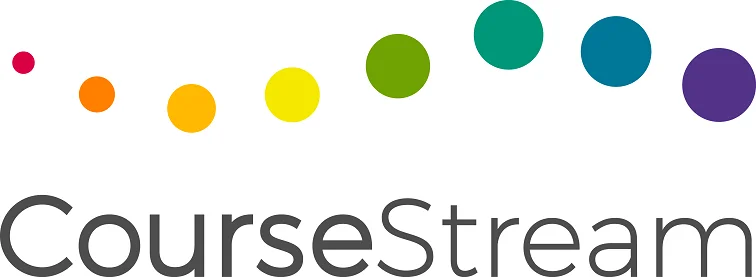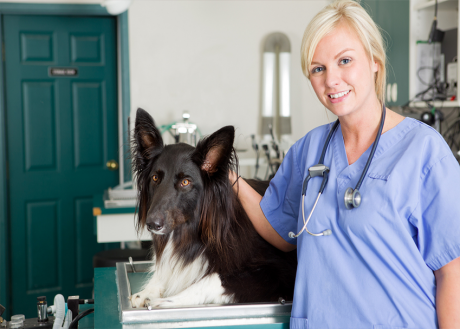Study this Animal Health Care Course Online and Learn Veterinary Procedures!
This online animal health care course will give you the needed ability and knowledge to know the natural behavior of animals in different situations, to identify signs of animal illness, and the first aid treatment that could be done. This course also helps you develop skills in taking care of animals during or after a treatment.
Online Animal Health Care Course
Follow your passion into Animal Health Care
- Assistant vet nursing course
- Suitable for anyone interested in working with animals – from wildlife parks to vet’s practices.
- Understand animal health care issues and what can be done to improve animal health.
- Developed and taught by highly experienced tutors (practicing Australian Vets)
- Study in your own time at your own pace.
Learn to care for the health of any type of animal (focus is on mammals and birds) and understand the scope of services offered.
Why study this Animal Health Care course?
Calling all animal lovers! If you have a passion for pets and wildlife, CourseStream’s online Animal Health Care course is for you.
Developed by practicing Australian veterinarians, this self-paced online course will provide you with a thorough understanding of common animal health issues, including their symptoms, causes and treatments. You will learn about animal first aid procedures, and how to administer basic care and treatment to pets, farm animals, and wild animals.
Whether you work with animals for a living and desire to improve your skills or want a head start on tertiary studies, studying with CourseStream will have a positive impact on your future.
What will you learn?
CourseStream’s online Animal Health Care course will teach you how common health problems found in farm animals, pets, and wild animals are diagnosed and treated. With a focus on mammals and birds, you will learn how to care for animals before, during, and after treatment, including during rehabilitation. You will also study preventative animal healthcare, including healthy diets, vaccination, and insect control.
In addition to animal health, this course also covers administrative veterinary tasks, as well as different types of veterinary facilities and their capabilities. You will learn about veterinary safety procedures that will ensure both you and the animal remain safe and calm during care and treatment.
Upon completion of this course, you will have a thorough understanding of animal behavior, body language, and communication, and how they can indicate ill health or discomfort.
Who is this online Animal Health Care course for?
Course Aims
- Describe the scope of services offered by animal care services.
- Describe common health problems in various animals.
- Explain the natural behaviour of different types of domestic animals in different situations.
- Identify common signs of ill health in a variety of animals.
- Describe purposes of a range of facilities in a veterinary practice.
- Determine safety procedures for a veterinary practice.
- Describe a range of administrative tasks carried out in a veterinary practices.
- Describe first aid procedures and treatments for different animals.
- Describe requirements for maintaining good health in domestic animals.
- Develop an understanding of routine treatments for healthy animals.
- Develop broader awareness of health issues and treatments in domestic pets.
- Develop skills in caring for animals prior to, during or after treatment
Course Structure
There are 12 lessons in this course:
- Introduction to Animal Health Care
- nature and scope of veterinary services
- private veterinary practices
- other veterinary services; laboratories, quarantine, agriculture departments, pharmaceutical companies, educational, etc
- other animal services; breeders, holiday care, etc.
- animal welfare and control
- veterinary services
- code of practice
- terminology
- transporting animals
- Common Health Problems in farm animals and pets
- causes of ill health
- injury
- conditions
- nutritional problems
- living organisms
- parasites
- family pets common conditions
- dogs
- cats
- caged birds
- aquarium fish
- mice
- wild animals common conditions
- reptiles
- Animal Behaviour
- communication in dogs
- scent
- barking
- body language
- handling cats
- bird language
- types of behavior
- time orientation
- space orientation
- territorial behavior
- aggression
- horse psychology
- Signs of Ill Health
- vital signs
- the healthy animal
- signs & symptoms of diseases
- recognising ill health
- diagnosis of diseases
- taking smears
- taking tissue samples
- diagnosis and control of different types of diseases including
- viruses
- bacteria
- protozoa
- parasites
- mites
- fleas
- Veterinary Facilities
- types of facilities; clinic, hospital, mobile facility, emergency facility,etc
- first aid kit; aids for diagnosis, instruments, medicines, preparations, etc
- record management
- enclosure for animals
- environmental requirements
- Safety Procedures
- duty of care
- lifting heavy weights
- reducing back injury
- protective equipment
- dealing with chemicals
- skin penetrating injuries
- risk categories
- separating animals
- disposal of dead/infected tissues
- dangerous non-animal wastes
- storage and handling of medicines
- handling larger animals
- Administration of Animal Health
- animal insurance
- quarantine
- importing animals
- managing a veterinary office
- telephone usage
- record keeping
- filing information
- Animal First Aid
- types of wounds
- cuts
- punctures
- tears
- treating and cleaning wounds
- granulating wounds
- stitching a wound
- bone and joint problems
- broken bones
- tendon injury
- poisoning
- restraining animals during first aid
- restraining cats
- restraining dogs
- restraining horses
- restraining cattle
- restraining sheep
- Preventative Health Care
- preventing ill health
- balanced diet
- insect control
- dip
- vaccination
- Comparing natural active immunity, artificial active immunity, natural passive immunity, and artificial active immunity
- tetnus antiserum
- types of vaccines
- alternatives to vaccination
- avoid stressing livestock
- Routine Health Treatments
- desexing
- castration
- vasectomy
- spaying
- tubal ligation
- castration of cats
- dogs
- pregnancy
- gestation periods
- euthanasia
- anesthesia and analgesia
- preparing an animal for surgery
- sterilizing equipment
- castrating a colt
- Health Problems in Domestic Pets
- burns
- urinary tract infections;
- shock
- electrolytes
- ticks
- reptiles
- fish problems
- Rehabilitation Care
- scope of rehabilitation
- planning a recovery
- animal nursing
- the hospital pen
- monitoring temperature, pulse, respiration
- enclosures
Enrol Now
- Experienced Tutor support
- Certificate sent to you
- Online study (Printed notes available)
- Self paced - no set timetable
- 12 months to complete course
From: $35.00 / week for 19 weeks
Get a Free Info Pack!











